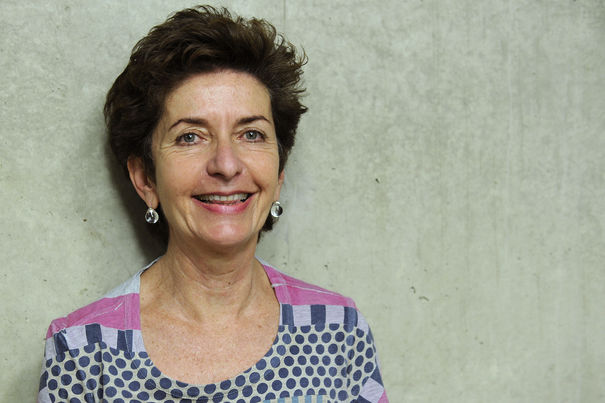Linkswalzer: Ruth Beckermann on WALDHEIM’S WALTZ
By Jesse Cumming

© Diagonale / Alexi Pelekanos
“One dances the waltz to the right side,” Ruth Beckermann told me in a conversation about the title WALDHEIM’S WALTZ, her incisive and urgent Forum documentary about former Austrian Prime Minister Kurt Waldheim and the mid-1980s revelations of his wartime participation in Nazi campaigns.
Voiced in first-person by Beckermann in an essayistic format, the film is predominantly sourced from broadcast television clips, with gaps in representation filled in via shaky and degraded video shot by the filmmaker during contemporaneous protests against Waldheim. In addition to speeches and demonstrations, the footage captures explosions between protestors and the pro-Waldheim individuals willing to overlook his wartime activities as part of the Third Reich’s Wehrmacht troops. “I was a witness at the time,” says Beckermann, discussing her first-person approach and the tension between documentarian and protestor that runs through the film. “I’m in the middle!”
While ostensibly an archival political documentary, WALDHEIM’S WALTZ also operates richly as a work of media criticism, analysing the gaps in representation between domestic and international coverage of the affair, and the shift in the 1980s in how the Shoah was considered, aided by film and television. "It was important to ask ‘why this moment?’, the mid-1980s, which was very late. But if you look back it was only in 1979 that the TV series HOLOCAUST was shown, and that the term Holocaust became known, and then the film SHOAH, as you know…”
The film, which condenses the three months prior to Waldheim’s 1986 election, stretches backward to incorporate episodes of Waldheim’s past as the country's Secretary General to the UN and more, while also gesturing forward toward subsequent, cyclical groundswells of right-wing populism in Austria. Never explicit, but resonant, is the recent populist coalition in Beckermann’s home nation, as well as other global shifts to the right. “The waltz repeats itself,” continues Beckermann, returning to the film’s title, "until all of a sudden there is a break in the rhythm. It was created on purpose, to make people get up and dance. To me this is like Austria: very boring, boring, boring, and then suddenly these right-wing people come up with something exciting, and terrible.”

